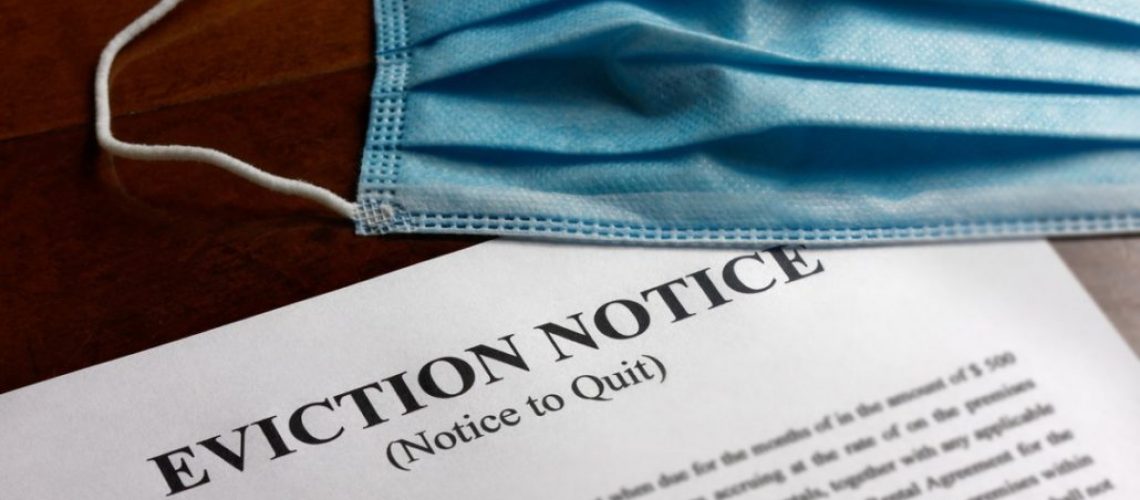If you’re facing eviction, bankruptcy may be a part of your recovery plan. A Federal Judge in Ohio has ruled that the CDC has exceeded it’s authority with the current ban on evictions, according to CNBC article by Annie Nova, March 11, 2021. And many Ohio renters are worried. Bankruptcy and eviction often go together.
In fact, in a recent article, City Beat (December 10, 2020) reports that 11% of Ohio renters may be at risk of eviction. When eviction strikes, you need to know all your options, including how you might be able to use bankruptcy to stop eviction and get more time to move and to eliminate the burden of unpaid rent, and any “damages” your landlord may claim you owe.
Things you need to know:
Can Bankruptcy Stop Eviction?
Yes, filing bankruptcy can stop eviction, but the protection is temporary. And, you need to act quickly if you have received an eviction notice. Once the landlord gets a judgment of eviction against you, the landlord can request a hearing in the bankruptcy court to end the automatic stay and continue to evict you.
The process of lifting the stay in the bankruptcy court can take 21 days, or possibly less. While the motion to remove the stay is pending in the bankruptcy court, the eviction in the local State Court is paused. This is how bankruptcy and eviction work together, you are now involved in two different court proceedings.
If the landlord has already obtained a judgment against you, then it works a bit differently. The filing of the bankruptcy does create a stay on the eviction, but after 30 days this ends. If, however, you cure all of the rent deficiency (past due rent) and deposit that money with the court, you could then request the court to continue the stay and if you do this the landlord may even voluntarily withdraw the eviction, because the rent is paid. This would not be mandatory and in practice is seldom done.
Can bankruptcy discharge back rent and damages?
Yes, filing bankruptcy can discharge back rent and damages. In practice, when a tenant has to file bankruptcy after being evicted, the bankruptcy will provide a brief extension of time so that the tenant will be able to find a place to move to, and avoid the forcible removal of his personal property.
Example:
Landlord files eviction for unpaid rent. The tenant is too far behind to pay the past due amounts, and the landlord will not work with the tenant. Tenant attends the State Court hearing and tells the Judge that he knows he is behind and cannot pay the past due rent. He requests additional time to move. The judge grants him only 10 days.
Tenant knows it will take more than 10 days to move. He consults a bankruptcy attorney and decides to file a chapter 7 to wipe out the past due rent and any damages the landlord may later claim. He files his bankruptcy before the 10 day move out date arrives. This will probably provide tenant with up to 30 days to move, due to the automatic stay imposed on the landlord by the bankruptcy.
Note, however, in this example, that the debt discharged in the bankruptcy will be the amount of back rent owed as of the day the bankruptcy is filed. The landlord can later claim rent for the time the tenant is in the property after the bankruptcy is filed. Also, if the landlord claims the tenant is damaging the property or using controlled substances there, the landlord may file a certification in the bankruptcy court to this effect, and the tenant has only 15 days to respond.
Bankruptcy and eviction is a complex topic, and it’s best to seek the advice of an attorney if you find yourself in this situation. “In most cases, I see bankruptcy used to provide a little extra time for tenants to find another place to live, and arrange for moving their property. Then we wipe out the back rent and damages, and all their other debt as well, keeping their cars and beginning the process to rebuild” says Richard West, a Board Certified Consumer Bankruptcy Specialist. “It’s not realistic to think that bankruptcy will erase the unpaid rent, and allow you to stay in the property” he adds.




